
The Proposition 8 ruling was acquired by a skillful game of definition rather than justice.
On August 4, 2010, a marriage protecting amendment voted in to the California Constitution by the Californian majority was overturned by a member of a tiny minority. Judge Vaughn Walker’s 138-page ruling concludes that “a private moral view that same-sex couples are inferior to opposite-sex couples is not a proper basis for legislation.” Ironically, Judge Walker – who is allegedly homosexual himself – was feared by the likes of Nancy Pelosi over twenty years ago as not being sensitive enough towards gays to deserve judicial nomination.
Proposition 8 was declared “unconstitutional” according to the Fourteenth Amendment of the U.S. Constitution. Ratified on July 9, 1868, the 14th Amendment which was originally passed to protect the citizenship rights of freed slaves has since been stretched like taffy to legalize such bizarre things as abortion and redefining marriage, and is also used as a recurring argument in the illegal alien debacle.
All of the fuss stems from Section 1, which says:
“All persons born or naturalized in the United States, and subject to the jurisdiction thereof, are citizens of the United States and of the State wherein they reside. No State shall make or enforce any law which shall abridge the privileges or immunities of citizens of the United States; nor shall any State deprive any person of life, liberty, or property, without due process of law; nor deny to any person within its jurisdiction the equal protection of the laws.”
The Plaintiffs in the Perry v. Schwarzenegger case “allege that Proposition 8 deprives them of due process and of equal protection of the laws contrary to the Fourteenth Amendment”. The subsequent arguments and resulting order in the case form an amusing circus of mind control rather than a legal precedent that could ever be taken seriously.
First of all, the Plaintiffs have made (deliberately) a glaring legal error which I was at first surprised Judge Walker could overlook with no fallout. The opponents of Proposition 8 argue that homosexuals are a suspect class. But as every student of law and political science knows, homosexuals are not a suspect class. They are not even a quasisuspect class. Homosexuals are a nonsuspect class. This means that the court should only have to apply a minimum rationality standard of review.
But the Plaintiffs have demanded a strict scrutiny standard of review, which is only supposed to legally apply to those who are discriminated against because of their inherent physical race, not because of their behavior. In order to get away with this, they have gravitated towards an easily manipulated parenthetical within the definition of suspect class: “when laws treat people differently due to race (or legislation that infringes on some fundamental rights)” (pg. 142, Keeping the Republic, 3rd Brief Edition by Christine Barbour and Gerald C. Wright).
Thus, the Plaintiffs argue that marriage is a fundamental right. Apparently homosexuals who demand marriage know not what they are asking for.
MARRIAGE – The act of uniting a man and woman for life; wedlock; the legal union of a man and woman for life. Marriage is a contract both civil and religious, by which the parties engage to live together in mutual affection and fidelity, till death shall separate them. Marriage was instituted by God himself for the purpose of preventing promiscuous intercourse of the sexes, for promoting domestic felicity, and for securing the maintenance and education of children.
– American Dictionary of the English Language by Noah Webster, 1828 (an edition that could have been used by ratifiers of the Fourteenth Amendment, by the way).
MARRIAGE – the state of being married; relation between husband and wife; married life; wedlock; matrimony
– Webster’s New World Dictionary, Third College Edition
Marriage is a covenantal union between a man and a woman – husband and wife – that has been recognized for millenia (there are also age and blood relative limitation standards to be met before acquiring a marriage license, so it isn’t necessarily an inalienable right). Thus, homosexual individuals already have the right to marry. They just aren’t interested in exercising it. A homosexual couple cannot demand and acquire marriage anymore than I, as a woman, can demand and acquire a vasectomy. It has nothing to do with inequality of personhood or unequal treatment by the law. Rather, it simply cannot happen – unless, of course, some definitions are drastically changed. Even Elton John recognizes this and respects marriage for what it is:
“I don’t want to be married. I’m very happy with a civil partnership. If gay people want to get married, or get together, they should have a civil partnership…You get the same equal rights that we do when we have a civil partnership. Heterosexual people get married. We can have civil partnerships.”
California allows registered domestic partnerships. Despite this, the opponents of Proposition 8 have made an emotional argument that “domestic partnerships do not satisfy California’s obligation to allow Plaintiffs to marry.” The Plaintiffs say that a domestic partnership does not have the same social meaning as marriage and that it treats same-sex couples as inferior to opposite-sex couples. Perry, a lesbian, says in the case, “I’ve been in love with a woman for 10 years and I don’t have a word to tell anybody that.”
So, apparently in court a lover of vanilla can make a case for being called a chocoholic solely because she can’t think of another word to express how much she likes her favorite flavor.
The strategy employed by the Plaintiffs is very predictable. When one is losing a debate, the best chance of winning is to redefine the debate. They are not legally deprived of marriage – they don’t want what marriage really is. In order to make their lifestyle seem more normal and comprehensible to the public, they desire to call it “marriage”. They even brought psychologist Gregory Herek to the scene to define sexual orientation. Herek defines homosexuality as a “normal expression of human sexuality” (I would like to see what his definition of “normal” is).
The burden of proof is supposed to rest on the Plaintiffs. But because the Plaintiffs (by manipulating definitions) have rigged the case to a strict scrutiny standard of review, there now must appear in court a compelling state interest for outlawing marriage between homosexuals. The Defendants’ arguments fail to sway Judge Vaughn Walker, who says in his order that the “Plaintiffs have demonstrated overwhelming evidence” and that “Proposition 8 does nothing more than enshrine in the California Constitution the notion that opposite-sex couples are superior to same-sex couples.”
This puts the debate in a ridiculous context. Imagine any other conflict of morality and definition and it soon becomes apparent. Does a compelling state interest exist for outlawing public nudity? If there were a vote on such a subject in which the majority decided that it only made sense to prohibit indecent exposure, would the likes of Judge Vaughn Walker rule, “a private moral view that naked people in public are inferior to clothed people in public is not a proper basis for legislation”?
Judge Walker’s tremendous misnomer in the Proposition 8 ruling is twofold: First of all, superiority and inferiority have nothing to do with the discussion – that is a trick argument. Secondly, the conviction that “gay marriage” is an oxymoron both confusing and improper for our society is not a private moral view. It is a PUBLIC moral view.
In fact, the only “private moral view” being exercised is the private view of Judge Walker. Like Pat Buchanan says in his excellent article, the Proposition 8 ruling is only Judge Walker’s opinion. When it comes to discussions of civil rights and freedom of speech, it is common to hear the phrase “tyranny of the majority” invoked. But in contemporary society, political correctness has so infiltrated the mainstream that, politically speaking, we are in greater threat of tyranny of the loud minority. They cry foul, believing we are insensitive to their concerns, while disrespecting what the majority holds dear.
Imagine for a moment that a group of fifteen children are playing a game and two children enter the room demanding the game rules be changed to accommodate them because they have a different standard and insist they can’t do anything to change themselves. If the fifteen players refuse because they view the two others to be wrong, and those two then repeatedly harass them about it, who are the real bigots – those in the majority, or those in the minority?
Historically, I might add, a tyranny of the minority is usually known as an oligarchy…
Read more of Amanda’s column Not Your Average Read in the Communities at The Washington Times.

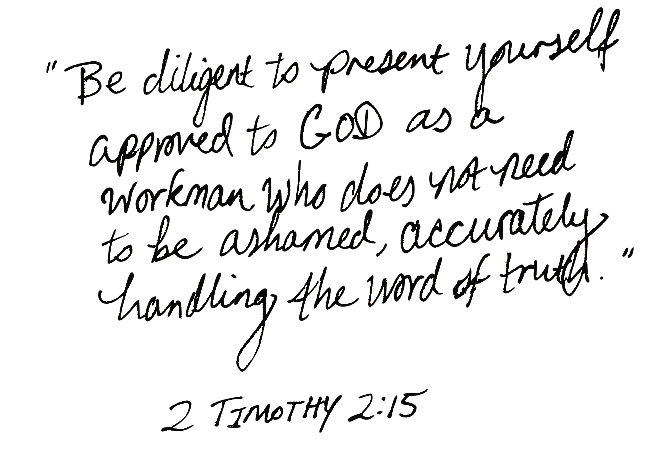


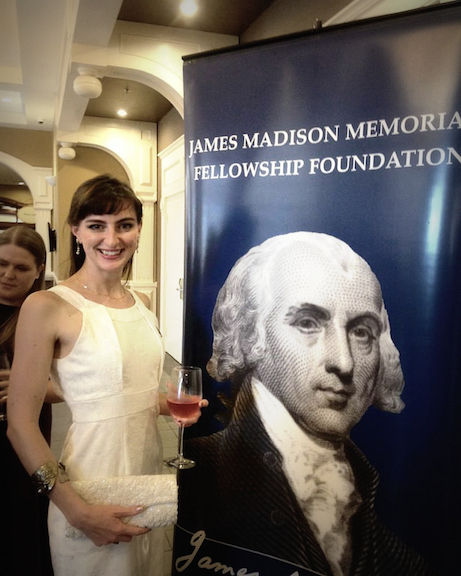
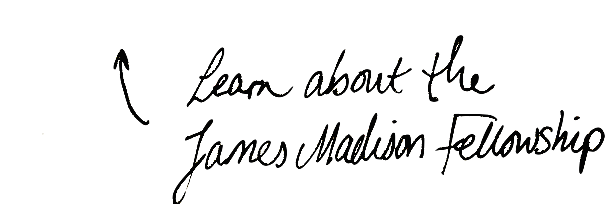


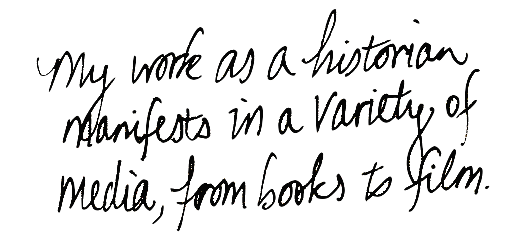

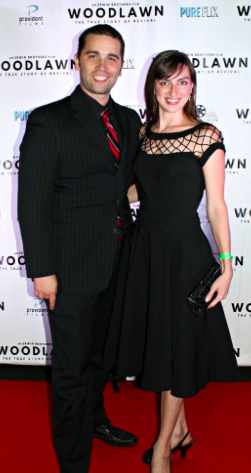





Wow. How can you have a problem with two people loving each other?
They aren’t forcing you to become a lesbian, so leave them to their own life.
It may be confusing for some, but love and sex are not synonymous. Attraction and love are not synonymous. Love is the opposite of selfishness.
I find it interesting that judge Walker wants Biblical Christianity to be “In the privacy of ones home”, essentially violating the First amendment in regards to compelling real Christians to be silent when their faith says they can not. Those who hold a Biblical world view see homosexuality as one of many sins one would practice whereby one can not be saved. Because the cornerstone of our faith is that Christ has the power over and came to redeem us from sin, we have HOPE for all of us to be free of that sin. (Read HOPE not judgmentalism)
If homosexuals can be framed as a protected group in the area of marriage the next logical step is to only give the license to perform marriages to ONLY those who will agree to marry same sex couples as well. It is one more step in individuals being forced to accept (and enable) what they find unacceptable.
If anybody thinks that Christians are not willing to suffer and die for what we believe you are sorely mistaken and do not know history.
James, you might be literally insane!
We enable people with distasteful opinions and worldviews all the time. It’s a cornerstone of the country and why we still tolerate the KKK and hate speech.
Walker is saying that Christianity, like any worldview, ends with you. Grow up and realize that everyone is not going to behave like you and that we’re especially not going let you erect a theocracy.
I have no doubt you’re insane enough to die over two guys getting married. It’s a terrifying thought.
Gentlemen, the point that Amanda is making is that when a majority of a people vote on an issue and say they do not want it, their vote should count. That is to say, the Californians voted for proposition 8, and said in effect, “We do not want homosexuals to have the ability to get legally married.” The state asked the voters, the voters responded. The majority spoke. Then a judge who is ruled by his own preferences, twists the Constitution to his own ends, and overrules the people. Judges are not to make law, they are to enforce it. There is no law anywhere that says that homosexuals should be able to be married. I am sorry, that is reality. It matters not what you would like it to be, it is what it is. It is wrong for the judge to rule on such a case like this on behalf of plaintiffs who think they have an inalienable right to be married. They do not. People need to stop trying to get the Constitution to give them rights they do not have nor do they deserve to have. Let them keep their domestic partnerships. And by the way, the right to life, liberty and the pursuit of happiness applies to all races, all human beings and all people who have life in them. That is not the same as defining oneself by a particular behavior or lifestyle.
Anne, time to go back to school. Loving v. Virginia established marriage as a basic civil right.
And what if Californians voted to enact slavery? Outlaw Protestant churches from being built? It would be deemed unconstitutional by a judge. In case Walker is I. Err, we have two more courts to work through.
Injustic performed democratically is still injustice.
There’s a reason we can not directly vote laws into the books. There’s a reason the judicial branch was separated from the executive and legislative branches.
Judges have the power to override the tyranny of the majority. They were given that power by the founding fathers, people who are so often revered whilst opining about “this Christian nation”. So, if the founding fathers get credit for establishing the theocracy you’re so desperate to be real, they also get credit for preventing bigots and the uninformed from legislating injustice.
The right to marriage has been reaffirmed by the Supreme Court 14 times in this nation’s history. This was not judicial activism – it was justice.
Oh, come on WEM, we all know “Activist Judge” is just politispeak for “Judge who makes a decision I disagree with.”
Political activitism is a judge who legislates by on the bench by fiat. THe US Constitition is not a “living document” Only those dictatorships, (including Kings) like the old soviet Union had living documents- THat way they can “interpet what is convienient for the moment. THe Constition was mean to be like the Ten Commandments written in stone, not movable or a tranny by the unelected will trample the Bill of Rights under their feet.
Only by an amendment could new meaning be brought to bear.